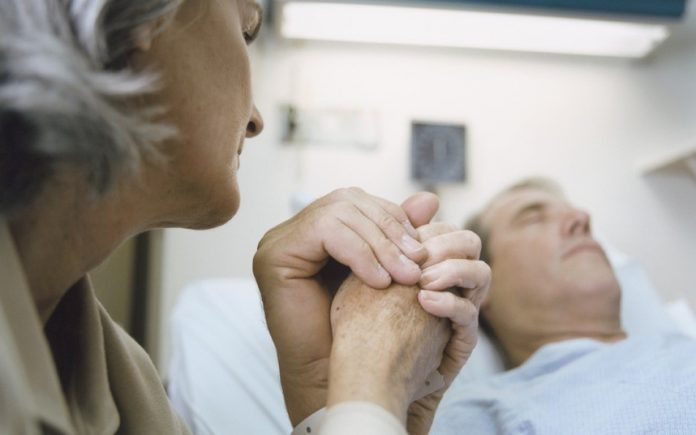Temporary changes to visitor restrictions for compassionate care have been updated for all Saskatchewan Health Authority facilities. The SHA continues to ask for the public’s support and cooperation to contain the spread of the COVID-19 illness by following the new visiting restrictions.
During this unprecedented time, visitors are NOT permitted in any Saskatchewan Health Authority operated hospitals, clinics, community and continuing care facilities, except for compassionate reasons. We recognize how difficult this is for patients and families, but this decision is guided by the need to protect our patients and health care teams during COVID-19.
Compassionate Care Visitation
Compassionate reasons may include immediate family during end-of-life care, family of patients prior to a major surgery or visitors aiding in clinical care (at the discretion of the patient’s care provider).
One healthy visitor is allowed at a time for in-person visits for compassionate reasons. This can include a spouse, common-law spouse, child or stepchild, parent, grandparent, grandchild, sibling or a support person with whom the resident has had an equivalent relationship.
This applies to the following areas:
- Patients in end-of-life care including those who are in palliative care, hospice care, or at a high risk for loss of life, as determined by the attending physician, in consultation with unit manager/ charge nurse.
- Maternal and postpartum units may have two visitors at one time if approved by the unit manager/charge nurse (e.g. both a partner and doula; or both surrogate support and an intended parent).
- Pediatric units may in rare situations have two visitors at one time if approved by the unit manager/charge nurse (e.g. both parents in a pediatric end of life situation).
- Intensive care/NICU/ or critical care situations where the attending physician determines the patient’s condition is considered high risk for loss of life.
- Outpatient, emergency department patients, urgent care and inpatients who have specific challenges such as mobility, hearing, visual or memory impairment.
- Residents in long-term care and special care homes where it is determined that the resident needs are unable to be met by the care team, visitation will be restricted to two (2) designated individuals with one family/support person present at a time.
Visitors who are permitted under these exceptions must be verified and undergo a health screening prior to entering the facility. This includes a temperature check and questionnaire. The visitor will be required to perform hand hygiene (hand washing and/or use of hand sanitizer) when entering and leaving the facility and when entering and leaving the patient’s room. Visitors will also be required to wear a mask while inside the facility, and potentially additional personal protective equipment if required. Visitors are not permitted to wait in waiting rooms or other common areas.
NOTE: Patients and residents should NOT leave the care facility to visit family or friends.
Personal Items
Personal items including food and beverages cannot be dropped off at the hospital or care facility, as this increases the risk of transmission. However, a designated visitor may bring personal items including food and beverages to the patient or resident.
Virtual Visiting
Until we are able to safely allow visitors back into our health care facilities, we encourage you to consider other ways to stay connected with your family members or friends in our hospitals and long-term care facilities, such as phone calls or online means of communication. We encourage families to consider virtual visiting through electronic applications such as FaceTime, Skype and WhatsApp. We are asking families and visitors for their co-operation in following these restrictions.
Understanding that it is difficult for families to have loved ones in hospital or other care areas, we are working to support families with virtual visitation options, including making phones available in hospitals and iPads more accessible to long-term care residents to assist with virtual visiting.
All community, foundation and other public and spiritual gatherings within any SHA-operated facility remain on hold until further notice. Services provided by community volunteers who are 65 years of age or older, in non-essential service areas are also suspended.










